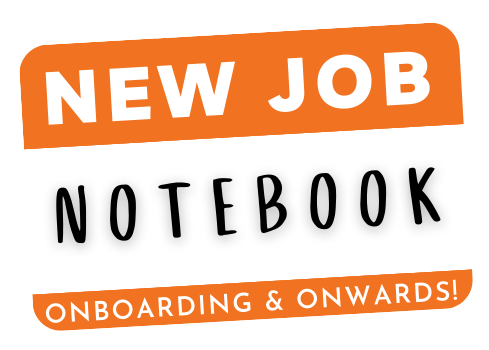May 20, 2023
The month of May marks graduation season across the United States. Congratulations if you are celebrating this incredible milestone! You are closing the chapter on your college life where you've most likely spent years working hard, studying and preparing for this moment. But as you make this transition from student to employee, you may be feeling a mix of excitement, uncertainty and perhaps even a little anxiety. After all, campus life can be vastly different from office life. You may have excelled and accumulated lots of academic achievements as a student, but how will you stand out in a competetive job market and launch yourself into an equally impressive professional career?
Leverage Your College Experience
As someone who has had leadership roles and managed teams for over a decade, I've been in a fair share of interview processes and met with many candidates hoping to land an open position. When hiring for entry-level positions, I look for the best mix of applicable experience, skills and attributes that demonstrate a candidate's ability to succeed in the open role. I understand that individuals who are early in or at the start of their career may not have extensive professional experience to speak of, so I consider core transferable skills that give me an indication of a candidate's potential to succeed and thrive if hired for the role.
Being new to the professional workforce doesn't mean that you have to start off completely from scratch. Chances are you've had great opportunities to practice and apply these skills as a student. The key is to recognize and leverage your stories and experiences from college to demonstrate your qualifications to potential employers. Let's dive in and explore this in more detail.
Bring These Skills to the Workforce
1. Communication
Effective communication is a crucial skill in just about any setting. As an employee, you should be able to clearly and professionally communicate both verbally and in writing. Additionally, active listening is important since communication is a two-way street.
How you developed this as a student: This criticial skill should have been practiced regularly through your school reports and projects. Think about emails and other communications you've sent to professors, administrators or classmates and pay close attention to your style of writing. Did you seek out opportunities to speak in public for prepared talks and presentations as well as impromptu situations? These are examples that show your ability to organize and articulate your thoughts clearly and effectively.
2. Time Management
In just about any role you can think of, you will be involved in tasks and responsibilities that are tied to specific timeframes and deadlines. Being able to manage your time effectively ensures you can complete your job function, and consistently doing so helps to demonstrate your reliability and accountability. If you have multiple tasks and projects then time management enables you to prioritize your work accordingly.
How you developed this as a student: When reflecting on your life as a student, take note of specific coursework or projects that required you to manage your time similarly. Also consider your involvement in extracurricular activities, clubs or student organizations. How did you balance your academic commitments with your extracurricular pursuits while meeting deadlines and excelling in both areas? These are great stories and examples to use when interviewing with potential employers.
3. Problem-Solving
Hiring managers want to see if a candidate can analyze problems, think critically and come up with creative solutions to challenges they face. Critical thinking is developed in college through research projects and the process of analysis used to identify issues, assess potential solutions and take action to achieve a successful outcome.
How you developed this as a student: Problem-solving can be done individually or by working with others. Group projects and other team-based activities provide opportunities to demonstrate your ability to work collaboratively and navigate team dynamics. Reflect on your contributions to group discussions and actions that helped overcome challenges and achieve the team's goals.
4. Technical Skills
Even entry-level positions require some level of technical skill in order to be successful. The specificity and level of proficiency will vary from industry to industry and the specific role you want. Your chosen field may require specific software or platforms, so you'll definitely need to make sure to discuss your famliarity with them.
How you developed this as a student: Reference any related courses or school resources where you were able to learn and practice with these tools. Internships can also provide opportunities to gain experience developing technical proficiency and applying your knowledge in a real-work setting. At a minimum you should have a solid foundation in office software (like Microsoft Office or Google Workspace) and online collaboration tools (like Slack, Zoom, Trello, or Miro). These are available and commonly used in many campuses and learning communities.
And finally, the last and arguably most important skill you need...

5. Initiative & Motivation (the Gateway to Leadership)
Ok so I've listed two things here, but I think they are largely related and closely tied together. This is the secret sauce, or as indicated in the picture above - your "latte art"! This is what sets you apart and elevates your game above others. If I ever have two candidates who are otherwise equal in all the other skills noted above, then this is the deciding factor that determines who is getting the job offer. Demonstrating a proactive attitude, intrinsic motivation and an eagerness to learn is absolutely an appealing trait over someone who does not give any indication of feeling connected to the role or mission and values of the hiring organization. Initiative and motivation can also give hiring managers a glimpse into your potential for future leadership opportunities.
How you developed this as a student: What have you done to continue your personal and professional growth outside of the classroom? If you held any leadership roles in student organizations, sports teams, volunteer roles or other extracurricular activities, be sure to share these experiences. Provide specific examples that demonstrate how you went above and beyond in a situation or recognized an issue and went out of your way to help resolve it. Ultimately, this is about not being satisfied with the status quo, staying curious and having a growth mindset.
Keep Developing These Skills
Ideally you have already been honing these skills as a student and will be able to use them to get a job after you've graduated. But it doesn't stop there. As you navigate your new life outside of college, continue to develop these skills to propel you further into your career. Good luck!
Who Am I?
Jessica Rivera is the Founder and CEO of New Job Notebook LLC. She is a workplace Learning & Development professional with over 20 years of employee onboarding experience across multiple industries for companies including AdventHealth, Baylor Scott & White Health and Disney Cruise Line. She is currently the People & Organization Development Lead at Wise overseeing their global onboarding program. To learn more about Jessica, click here.

